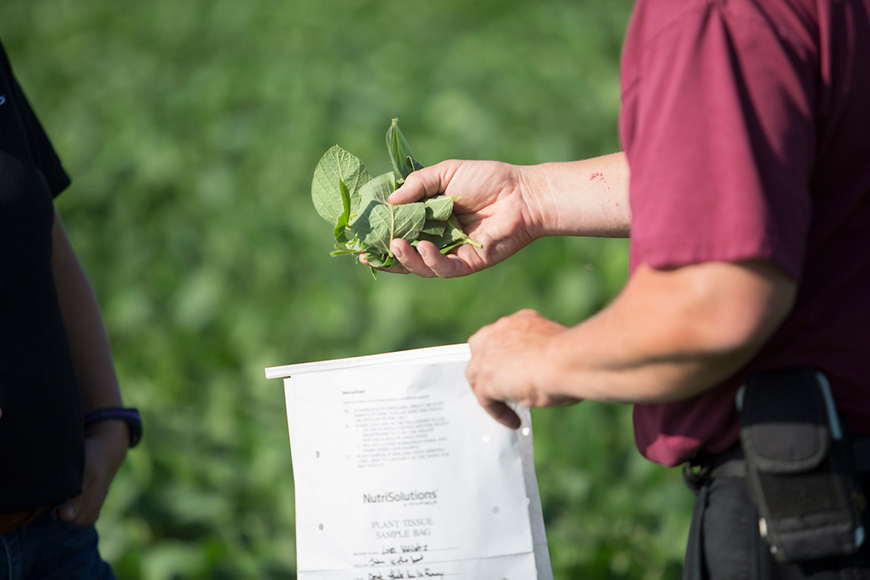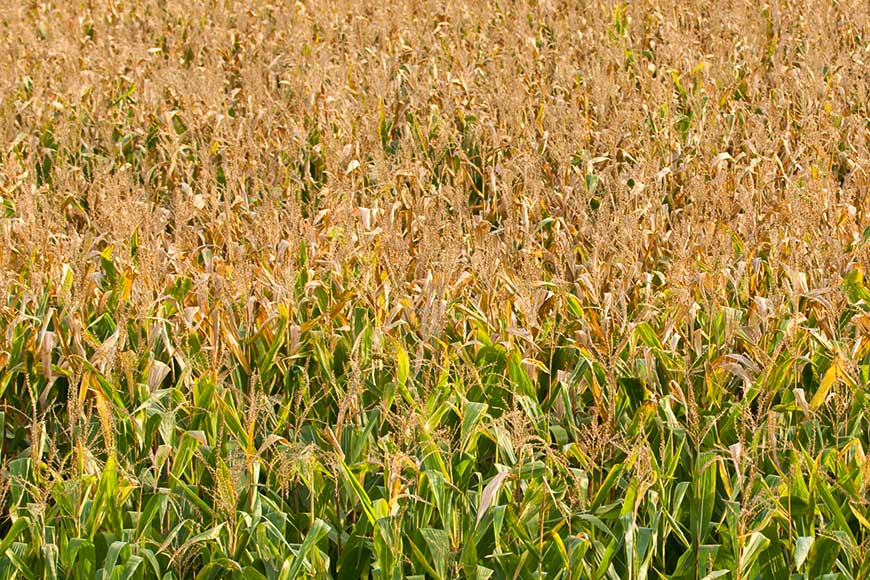What Excessive Rain May Mean For Your Farm

As unprecedented flooding continues to delay or prohibit planting progress in many areas, farmers are looking for answers. We understand the challenges you’re facing and the tough decisions you may be forced to make. Our teams and locally owned and operated retailers are here to help you find the best solutions when you’re faced with the worst circumstances. We know that farmers are resilient. While we can’t control the conditions that Mother Nature has handed farming communities this season, we want to arm you with the best recommendations to respond the best way you can.
While there isn’t much you can do to remove excess moisture from fields, tissue testing can help you understand how well nutrients are getting to plants after flooding occurs. That can help influence in-season nutrient applications you’ll need to make to maintain adequate plant nutrition. When the field dries out, you might still have time to make a side-dress application to replace nutrients that were lost due to flooding. In addition, a plant growth regulator such as Ascend® SL can help promote vigorous plant growth in difficult soil conditions. In some cases, you might want to consider different product formulations or application methods that will get nutrients to plants more efficiently, especially if root growth is limited. Your local agronomist can help you weigh those decisions and provide recommendations.
Disease pressure also tends to increase under wet conditions. For example, phytophthora can become a greater concern for soybeans in high-moisture environments, but it can be managed with the appropriate seed treatment and variety selections. One longer-term strategy farmers can take to mitigate the effects of saturated soils is to consider installing drainage tile on poorly drained acres. Use what you’ve learned this season to influence decisions for the future.
Important: Before use, always read and follow label instructions. Crop performance is dependent on several factors beyond the control of WinField United, including without limitation soil type, pest pressures, agronomic practices and weather conditions. Farmers are encouraged to consider data from multiple locations over multiple years and be mindful of how such agronomic conditions could impact results.
© 2019 WinField United. Ascend® SL, R7® and WinField® are trademarks of WinField United.
Roundup Ready 2 Xtend® is a trademark of Bayer.
Don’t abandon management on non-planted fields
If planting isn’t an option, don’t give up on field management. Once the water recedes, the first thing you’ll want to do is consider weed control options. In many situations, a burndown herbicide application of 2,4-D and glyphosate plus appropriate adjuvants can help clean up fields. In the absence of a growing crop, it will be critical to maintain weed control throughout the season. If weeds are allowed to go to seed, all of the effort you’ve put into having clean fields can be lost in just one season.Consider crop plan alternatives if you’re still able to plant
In some cases, it may be more economical to switch up your cropping plan rather than abandon planting altogether. For example, it could make sense to plant an earlier maturing hybrid or to plant soybeans instead of corn. As you weigh those decisions, be sure to consult your local agronomist or retailer to weigh the pros and cons of each option.Make weed control a priority and adjust plans if necessary
Since burndown and preemergence herbicide applications may not have been made, in-season weed control becomes critical to avoid future problems. A strong postemergence program that includes residual products will offer the best protection against weeds. If you’ve planted Roundup Ready 2 Xtend® soybeans, you may not meet in-season dicamba application deadlines if planting was delayed. In that case, you’ll need to work with your agronomist to come up with effective alternatives for weed control.Understand how flooding impacts plant nutrition and make amendments
There are multiple ways plant nutrition can be affected by saturated soils. First, microbial activity in the soil is limited under flooded conditions, resulting in slower release of nutrients to plants. At the same time, flooded soils can lose nitrogen, either through denitrification or leaching. Finally, saturated soils may temporarily become oxygen deprived, causing problems for root growth and development. One of the direct consequences of poor root health due to anaerobic soil conditions is that the plants won’t take up nutrients as effectively as they would in more aerated, less saturated soils.While there isn’t much you can do to remove excess moisture from fields, tissue testing can help you understand how well nutrients are getting to plants after flooding occurs. That can help influence in-season nutrient applications you’ll need to make to maintain adequate plant nutrition. When the field dries out, you might still have time to make a side-dress application to replace nutrients that were lost due to flooding. In addition, a plant growth regulator such as Ascend® SL can help promote vigorous plant growth in difficult soil conditions. In some cases, you might want to consider different product formulations or application methods that will get nutrients to plants more efficiently, especially if root growth is limited. Your local agronomist can help you weigh those decisions and provide recommendations.
Find ways to improve efficiencies
If you’re faced with a condensed window of time to get things done, look for ways to improve efficiency. For example, agriculture technology tools including the R7® Field Monitoring Tool and R7 Field Forecasting Tool can keep an eye on your fields and alert you to potential in-season problems. These tools can help you prioritize field management decisions and focus your dollars where they’re most likely to earn you the highest return on investment potential.Use challenges to fine-tune 2020 planning
We all wish circumstances were different this year. But since we’ve been handed these challenges, it’s a good opportunity to reevaluate your operation and find ways to help mitigate wet season challenges for the future. For farmers who live in areas where flooding or heavy spring rains are expected, seed and seed treatment selection become very important. There are certain corn hybrids that are more tolerant to saturated soils than other hybrids.Disease pressure also tends to increase under wet conditions. For example, phytophthora can become a greater concern for soybeans in high-moisture environments, but it can be managed with the appropriate seed treatment and variety selections. One longer-term strategy farmers can take to mitigate the effects of saturated soils is to consider installing drainage tile on poorly drained acres. Use what you’ve learned this season to influence decisions for the future.
Don’t give up
You don’t have to navigate the questions and challenges of this season alone. Open communication with your trusted agronomists and retail partners can help you identify appropriate responses to the ever-changing environment. We’re here to help you succeed as best you can this season. Don’t hesitate to reach out to your locally owned and operated WinField United retailer for support this season.Important: Before use, always read and follow label instructions. Crop performance is dependent on several factors beyond the control of WinField United, including without limitation soil type, pest pressures, agronomic practices and weather conditions. Farmers are encouraged to consider data from multiple locations over multiple years and be mindful of how such agronomic conditions could impact results.
© 2019 WinField United. Ascend® SL, R7® and WinField® are trademarks of WinField United.
Roundup Ready 2 Xtend® is a trademark of Bayer.





